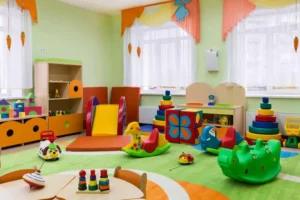Discipline is an essential aspect of parenting, especially for toddlers. As they explore the world around them, toddlers often display challenging behaviors that can test even the most patient parents. However, disciplining toddlers doesn’t have to be a battle. Adopting effective discipline strategies for toddlers allows parents to guide them towards positive behavior while nurturing their emotional and cognitive development. This article will explore ten highly effective discipline strategies for toddlers that promote positive behavior and strengthen the parent-child bond.

Table Of Contents:
- Introduction
- Understanding Toddler Behavior
- Importance of Positive Discipline
- Effective Discipline Strategies for Toddlers
- Setting Clear Expectations and Boundaries
- Using Positive Reinforcement and Rewards
- Time-outs and Time-ins
- Redirecting Attention
- Natural Consequences
- Offering Choices
- Using Distraction
- Ignoring Minor Misbehaviors
- Modelling Appropriate Behavior
- Practicing Consistency
- Additional Tips for Effective Discipline Strategies for Toddlers
- The Role of Parents in Discipline
- Conclusion
- FAQs (Frequently Asked Questions)
Introduction
Parenting toddlers can be a delightful yet demanding experience. Toddlers go through a formative stage between the ages of one and three, during which they become more independent and test the limits of their environment. Even if they go through a common growth stage, this may cause unpleasant behaviors like tantrums, stubbornness, and hatred. Using effective discipline strategies for toddlers can mold their conduct and create the groundwork for their future social and emotional health.
Understanding Toddler Behavior

Before delving into effective discipline strategies for toddlers, it’s important to understand the developmental stage and the common behavioral challenges they face. Toddlers are rapidly growing and learning, which can result in a wide range of behaviors. Some common behavioral challenges include tantrums, refusal to follow instructions, hitting or biting, and exploring their environment without considering safety.
Importance of Positive Discipline

A positive discipline is an approach that focuses on teaching and guiding children rather than punishing them. It fosters mutual respect, empathy, and self-control while encouraging positive behavior. Parents can build a strong parent-child relationship based on trust and open communication by adopting effective discipline strategies for toddlers. Additionally, positive discipline teaches toddlers essential life skills such as problem-solving, emotional regulation, and empathy.
Effective Discipline Strategies for Toddlers
1. Setting Clear Expectations and Boundaries
Providing clear and age-appropriate expectations helps toddlers understand what is expected of them. Setting simple rules and explaining their reasons can make boundaries clearer and easier for toddlers to follow.
2. Using Positive Reinforcement and Rewards
Acknowledging and praising toddlers for their positive behavior reinforces their good actions. Reward systems, such as sticker charts or small incentives, can motivate toddlers to engage in positive behaviors consistently.
3. Time-outs and Time-ins
Time-outs provide a brief break in a calm, safe environment when a toddler displays unacceptable behavior. Conversely, time-ins involve sitting with the child to help them calm down and reflect on their actions.
4. Redirecting Attention
When a toddler engages in undesirable behavior, such as touching forbidden objects, redirecting their attention to a more appropriate activity can be an effective strategy. Offering them a toy or engaging them in a different task can help divert their focus.
5. Natural Consequences
Allowing toddlers to experience the natural consequences of their actions can be a valuable learning opportunity. For example, if toddlers refuse to eat, they may feel hungry later. Experiencing the natural consequence can help them understand the importance of certain behaviors.

6. Offering Choices
Giving toddlers limited choices can empower them and give them a sense of control. For instance, instead of demanding that they put on their shoes, offering a choice between two pairs can make them feel involved in the decision-making process.
7. Using Distraction
Distraction can be useful to redirect a toddler’s attention from negative behavior. Introducing a new toy, singing a song, or initiating a fun activity can help shift their focus away from challenging behaviors.
8. Ignoring Minor Misbehaviors
Ignoring minor misbehaviors can be effective in extinguishing attention-seeking behaviors. When a toddler engages in relatively harmless or attention-seeking behaviors, withholding attention can discourage the repetition of those behaviors.
9. Modelling Appropriate Behavior
Toddlers learn by observing and imitating their parents or caregivers. Modelling appropriate behavior is among one of the most effective discipline strategies for toddlers. Parents need to display the behavior they expect from their children.
10. Practicing Consistency
Consistency is key when implementing discipline strategies. Toddlers thrive on predictability, so enforcing rules and consequences consistently helps them understand what is expected and reinforces positive behavior.
Additional Tips for Effective Discipline Strategies for Toddlers
In addition to the above strategies, there are some additional tips for effective discipline strategies for toddlers:
- Communication and Language Development: Encouraging toddlers to express their emotions and needs through language can reduce frustration and prevent challenging behaviors.
- Emotional Regulation Techniques: Teaching toddlers simple techniques to manage their emotions, such as deep breathing or counting to ten, can help them calm down when they feel overwhelmed.
- Promoting Healthy Routines and Environment: Establishing consistent routines and providing a safe and structured environment can contribute to a toddler’s overall well-being and reduce disruptive behavior.
- Encouraging Independence and Decision-Making: Allowing toddlers to make choices appropriate for their age and encouraging them to take responsibility for their actions fosters independence and self-discipline.
The Role of Parents in Discipline

Parents must create a loving and supportive environment for their children to build successful disciplining practices. Here are some crucial variables to consider:
- Building a strong parent-child relationship based on trust, love, and open communication.
- Practicing
Conclusion
Toddlers’ overall growth and well-being must receive discipline that is both positive and effective. Parents can foster positive behavior, foster emotional growth, and enhance the parent-child link by comprehending their children’s behavior, implementing constructive disciplining techniques, and establishing a supportive environment. Remember that discipline is about helping children learn how to be responsible, compassionate, and well-adjusted, not dominating or punishing them as they are still very young.
FAQs (Frequently Asked Questions)
Q1: How do I handle tantrums in toddlers effectively?
A: Tantrums are common in toddlers. Stay calm, offer comfort, and provide a safe space for them to express their emotions. Avoid giving in to their demands, and instead, encourage positive communication.
Q2: Are time-outs effective for toddlers?
A: Time-outs can be effective when used appropriately and calmly. They provide young children with a small respite to consider their actions and become more relaxed. But it’s crucial to ensure time-outs are age-appropriate and not applied as a form of discipline.
Q3: How can I handle aggression in my toddler?
A: Aggression is a common behavior in toddlers, but it can be managed. Encourage alternative ways of expressing emotions, such as using words or engaging in physical activities. Teach them empathy and guide appropriate ways to interact with others.
Q4: Is it necessary to punish my toddler for every misbehavior?
A: Not every misbehavior requires punishment. Minor misbehaviors can be addressed through redirection, positive reinforcement, or ignoring. Reserve punishment for more serious or harmful behaviors, always focusing on teaching and guiding rather than simply punishing.
Q5: What should I do if my toddler does not follow the rules?
A: Consistency is among the effective discipline strategies for toddlers, when it comes to rule enforcement. Communicate the rules and consequences, and follow through with consistency. Offer choices within the boundaries to empower your toddler and encourage compliance.
Q6: How long does it take for discipline strategies to show results?
A: Every child is different, and it may take time for discipline strategies to show results. Be patient and consistent in your approach. Over time, your toddler will internalize the positive behaviors and develop self-discipline.
Remember, there is no universal method for enforcing discipline. Because every child is different, modifying disciplining methods is essential. You may follow effective discipline strategies for toddlers like, encourage them toward positive conduct and healthy growth if you emphasize positive reinforcement, clear communication, and a supportive atmosphere.







